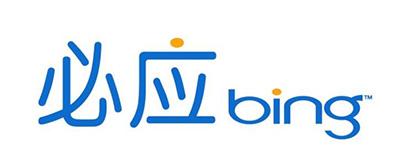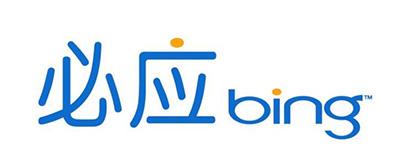

Recently, Microsoft officially unveiled the Chinese name for Bing.com, their brand-new search engine, as “必应”(bì yìng). Bing decided to have a Chinese name to show that they value the Chinese market and to help localize their brand. This is a noteworthy case of Chinese naming, as the English name sounds Chinese to begin with, and if not translated carefully could have many negative connotations.

Bing, when pronounced in Chinese, has the same sound as harmful words such as 毛病 (máo bìng), which means a fault, trouble, mistake, or defect, as well as病毒 (bìng dú), meaning virus. Therefore, Bing needed a Chinese name that would avoid negative connotations the English name could arouse.
When taking a closer look at the Chinese name chosen by Microsoft, we find “必应” (bì yìng) has many agreeable meanings in Chinese. “必” means will, definitely, without fail, and “应” means respond or agree. Thus, these two characters together communicate that the search engine will generate a response without fail. Furthermore, “必应” is part of “有求必应”(yǒu qiú bì yìng), a frequently-used Chinese phrase, meaning that one could find whatever he or she wants, and that one wouldn’t turn down another person’s request. In addition, “必应” (bì yìng) has almost same pronunciation with“必赢” (bì yíng), which means “will win without any doubt”.
As we can see, Bing’s new Chinese name effectively avoids the negative connotations of the original English name. An effective brand name forms the foundation of a successful brand, and the Chinese name is no exception.
A Labbrand Group Company © 2005-2024 Labbrand All rights reserved
沪ICP备17001253号-3To improve your experience, we use cookies to provide social media features, offer you content that targets your particular interests, and analyse the performance of our advertising campaigns. By clicking on “Accept” you consent to all cookies. You also have the option to click “Reject” to limit the use of certain types of cookies. Please be aware that rejecting cookies may affect your website browsing experience and limit the use of some personalised features.